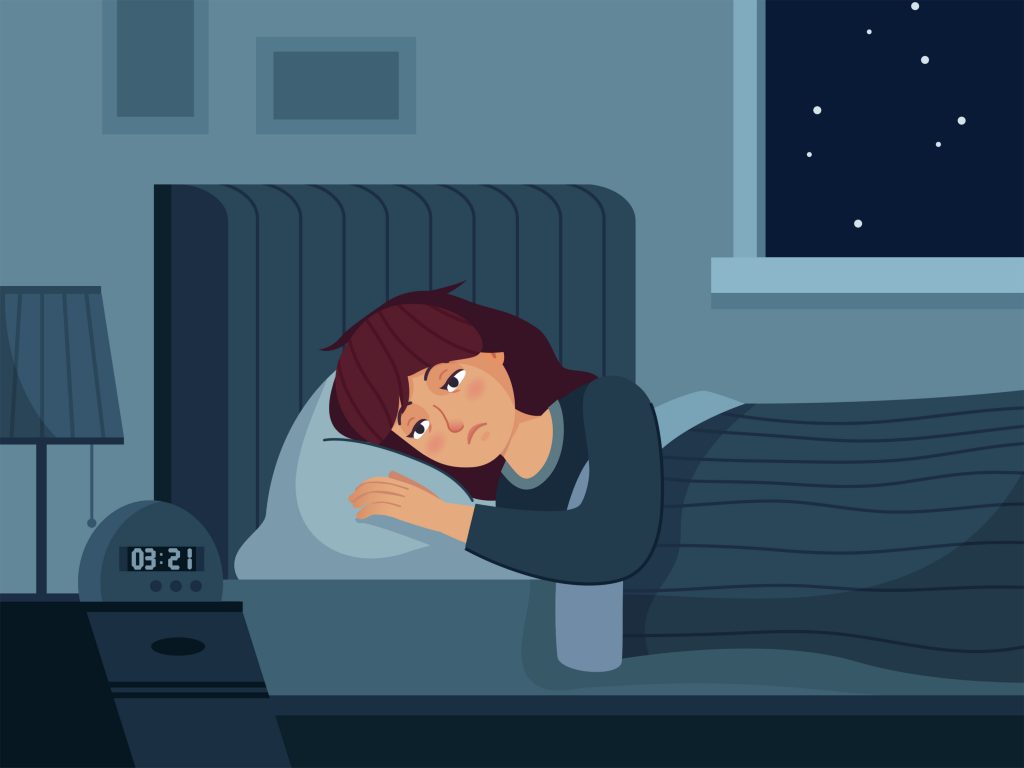In addition to suffering from direct physical symptoms, people living with chronic kidney disease (CKD) often face a secondary challenge: getting a good night’s rest. Sufficient, good-quality sleep is critical for healing and renewal, both physically and mentally. DaVita Kidney Care breaks down some reasons why people with CKD have trouble sleeping and offers some tips to help you rest better.
Why can people with CKD have trouble sleeping?
Physical discomfort and mental distress, whether separate or together, can prevent people with CKD from easily falling asleep and staying asleep.
Some of the most commonly reported reasons include:
- Restless Leg Syndrome (RLS): This usually acts up when you are lying down or sitting, and you may feel pain or itchiness in your legs that goes away when you move them. Diabetes, iron deficiency, and some medications may contribute to RLS symptoms.
- Sleep apnea: Sleep apnea is a condition in which you stop breathing for seconds at a time during deep sleep. When it stops for 10 or more seconds, your body wakes up to gasp for air and start breathing again. This causes an ongoing interruption of your sleep cycle.
- Insufficient dialysis clearance: If you’re on peritoneal dialysis (PD), your dialysate (dialysis fluid) may not be extracting enough toxins from your blood. Waste buildup in your blood can cause you to feel sick. Your doctor should periodically test your dialysate to make sure it’s functioning optimally.
- Anxiety and depression: Negative emotions are a common reason as to why people aren’t able to fall asleep or get back to sleep if they’ve woken up in the middle of the night. If anxiety and/or depression lasts for two weeks or more, inform your doctor.
- Sleep habit disturbance: Some people with CKD experience fatigue, which can make them sleepy at times outside of their usual sleep time. Daytime naps can interfere with your regular sleep cycle.
- Caffeine late in the day: Caffeine is a stimulant and can make you feel more alert. Too much caffeine in the evening, however, can prevent you from falling asleep. It can also contribute to RLS.
- Noisy peritoneal dialysis (PD) devices: Some patients on continuous cycler-assisted PD or nocturnal intermittent PD devices find that the sounds of the machine can either prevent them from falling asleep or wake them up. Speak to your doctor about alternatives.

What can I do to fall asleep and stay asleep?
Here are some steps you can take to alleviate symptoms and overcome sleeplessness:
- Exercise during the day. Exercise both improves your overall health and tires out your body so that it will healthily crave sleep. Your doctor can help you craft an exercise routine that is safe and appropriate for your condition and abilities.
- Limit nap time during the day. Long and/or frequent daytime naps can be so refreshing that sleep won’t come when you lie down in bed at night. If you need to take naps during the day, try to keep them short and limit how many naps you take.
- Train your brain and body for sleep. Going to bed at the same time each night and waking up at the same time each morning can help acclimate your brain and body to a regular sleep schedule.
- Limit your intake of alcohol, caffeine, and nicotine. This is especially important late in the day. Caffeine and nicotine are stimulants. Alcohol is a depressant and can make you sleepy, but it can also keep you from sleeping through the night.
- Start relaxing before bedtime. Dimming lights, reading, doing gentle yoga, and meditating are all ways to tell your body and brain that it’s time to wind down. Avoid TVs, computers, phones, and any other devices with a screen that emit blue light.
- Maximize physical comfort. A quiet room, a comfortable bed and pillow, and soft sheets and blankets can help make staying in bed a more pleasant experience than leaving it. A dark room also supports the brain’s restorative functions during sleep.
If, after trying these techniques you still experience insomnia for more than a week at a time, let your healthcare provider know.
Additional information can be found in the SleepApnea.org article, “Research: Sleep problems impact kidney health.”
*DaVita Kidney Care. (2020). Sleep Issues and Chronic Kidney Disease. https://www.davita.com/education/ckd-life/lifestyle-changes/sleep-issues-and-chronic-kidney-disease


Add Comments
Cancel